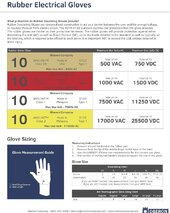I just took a full 8 hour electrical safety course at work last week.
I knew you needed to be safe, but holy crap I did NOT know the level of safety gear the industry expects you to wear just to go into an electrical panel and use a multimeter to verify no electricity on what you're working on.
I'm talking, appropriately electrically rated shirt
(with hood) , pants, shoes, gloves, balaclava and full electrically rated face shield.
Everything is rated in calories, to protect against a potential arc blast.
Granted we work with 3-phase AC 480, 208 etc, but it's A LOT.
They showed us three or four videos of the aftermath of people not wearing any PPE and admittedly I still left the class thinking that some of it was pretty overkill.









